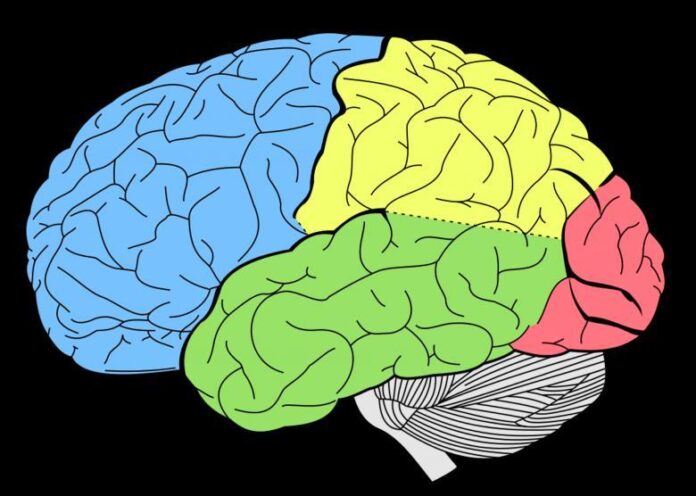
The Gut-Brain Connection: Understanding the Link Between Autism and Bowel Problems
Autism spectrum disorder (ASD) is a complex neurodevelopmental condition that affects communication, social interaction, and behavior. It is estimated that 1 in 54 children in the United States are diagnosed with ASD, making it one of the most common developmental disorders. While the exact causes of autism are still not fully understood, researchers have discovered a strong link between autism and gastrointestinal (GI) issues, such as bowel problems.
The gut-brain connection refers to the communication network that exists between the nervous system in the gut (the enteric nervous system) and the central nervous system in the brain. This connection plays a crucial role in regulating various bodily functions, including digestion, nutrient absorption, and immune response. Research has shown that disturbances in the gut-brain axis can lead to a range of health issues, including GI disorders, mood disorders, and neurodevelopmental conditions like autism.
Individuals with autism are more likely to experience GI symptoms, such as constipation, diarrhea, abdominal pain, and bloating, compared to neurotypical individuals. In fact, studies have reported that between 46-85% of children with autism have some form of GI problem. These symptoms can significantly impact the quality of life of individuals with autism, as they may experience discomfort, pain, and disruptions in daily activities.
One of the theories proposed to explain the link between autism and bowel problems is the role of the microbiome. The gut microbiome refers to the trillions of bacteria, viruses, fungi, and other microorganisms that reside in the digestive tract. These microorganisms play a vital role in maintaining gut health, regulating the immune system, and producing essential nutrients. Disruptions in the gut microbiome, known as dysbiosis, have been associated with a range of health conditions, including GI disorders and neurodevelopmental disorders like autism.
Several studies have shown that individuals with autism have an altered gut microbiome compared to neurotypical individuals. They may have lower diversity of bacterial species, increased levels of harmful bacteria, and reduced levels of beneficial bacteria. These imbalances in the gut microbiome have been linked to increased inflammation, impaired gut barrier function, and abnormal neurotransmitter levels, all of which may contribute to the development of both GI symptoms and behavioral symptoms in individuals with autism.
In addition to the microbiome, other factors may also contribute to the gut-brain connection in autism. Research has suggested that immune system dysfunction, genetic predisposition, environmental factors, and dietary habits may all play a role in the development of GI and neurodevelopmental symptoms in individuals with autism. For example, food sensitivities, allergies, and intolerances have been reported to trigger GI symptoms and behavioral changes in some individuals with autism.
Understanding the gut-brain connection in autism is essential for developing effective treatment strategies. While there is no cure for autism, interventions aimed at improving gut health and reducing GI symptoms may help improve overall well-being and quality of life for individuals with autism. Some of the treatment options that have shown promise in clinical studies include probiotics, prebiotics, dietary modifications, and behavioral therapies.
Probiotics are live microorganisms that can help restore the balance of the gut microbiome by promoting the growth of beneficial bacteria. Several studies have shown that probiotic supplementation can reduce GI symptoms, improve behavior, and enhance cognitive function in individuals with autism. Prebiotics are indigestible fibers that serve as food for beneficial bacteria in the gut. By promoting the growth of good bacteria, prebiotics can help improve gut health and reduce inflammation in individuals with autism.
Dietary modifications may also play a crucial role in managing GI symptoms and behavioral issues in individuals with autism. Some studies have suggested that eliminating certain foods, such as gluten and casein, from the diet may help reduce inflammation, improve digestion, and alleviate GI symptoms in individuals with autism. Other dietary interventions, such as increasing fiber intake, avoiding processed foods, and consuming antioxidant-rich foods, may also help support gut health and overall well-being in individuals with autism.
In addition to probiotics, prebiotics, and dietary modifications, behavioral therapies may be beneficial for addressing the gut-brain connection in autism. For example, cognitive behavioral therapy (CBT), mindfulness-based stress reduction (MBSR), and gut-directed hypnotherapy have been shown to reduce stress, anxiety, and depressive symptoms in individuals with autism. By reducing stress and promoting relaxation, these therapies may help improve gut health and reduce GI symptoms in individuals with autism.
Overall, understanding the gut-brain connection in autism is crucial for developing holistic treatment approaches that address both the physical and emotional needs of individuals with this complex condition. By exploring the role of the microbiome, immune system, genetics, environment, and diet in autism, researchers can gain valuable insights into the underlying mechanisms of the disorder and develop targeted interventions that may help improve the quality of life for individuals with autism and their families. By fostering collaboration between researchers, clinicians, and individuals with autism, we can work together to unravel the mysteries of the gut-brain connection and pave the way for more effective treatments and therapies for individuals with autism and bowel problems.












